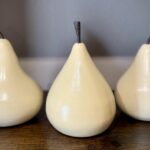 Add some color to your world this season by planting the most suitable seeds and flowers for life on the Space Coast
Add some color to your world this season by planting the most suitable seeds and flowers for life on the Space Coast
Story by Tammy Roberts photography by Cathy Heinz
At a time when new beginnings are all around us, now is the perfect opportunity to plan for your springtime blooms. When first deciding to create a garden, it is important to understand the elements that will help make your space a success. From deciding on the right location to plant your flowers to selecting species that will work best in your environment, there are many fundamentals to consider. Read on as some of the area’s most knowledgeable gardening experts flaunt their floral facts.
Flourishing in Florida: Six tips for ensuring your garden’s growth
- Size up your species. A plant may appear small and dainty when you see it displayed at the nursery, but before you make your purchase, be sure to read the label to determine how large the plant will become at full growth. Don’t be stuck with a thriving jungle, when all you want is a flowerbed.
- Here comes the sun. Where you decide to plant is almost as important as what you decide to plant. Whether your garden is in the backyard, front yard or screened-in porch, select plants based on the amount of sun they will generally receive during the day. “Full-sun” means plants will receive at least six hours of direct sunlight, while “partial-sun” or “partial-shade” means they should see three-to-six hours of sun each day, preferably in the morning or early afternoon.
- Water-logged. Water and drainage are some other important elements to consider when deciding on a location for your garden. Determine how long your plants will stay wet after rain or watering, their proximity to a sprinkler head and how quickly they will dry out. Too little water is just as damaging as too much.
- Your loyal soil. Despite our area’s naturally sandy soil, most plants will still do well with proper fertilizing and watering. Know the conditions of your soil (most garden centers and nurseries will test it for you) and how to amend it properly before you dig in.
- Halt the salt. If you call one of Brevard County’s beaches home, chances are your well water or the air around your garden will have higher amounts of salt. If salt spray is common on your car or windows, it may have an effect on your garden, as well. Most plants will not tolerate salt spray on their leaves.
- Know your plants.When creating your flower garden, it is ideal to choose varied combinations of perennial and annuals in your design, says Susan DelGiorno, a longtime floral specialist at Rockledge Gardens, which is a family owned and operated garden center and nursery. “This way, annuals can give you bloom when perennials no longer do,” she says.The majority of annuals are planted in spring and bloom through the summer and fall, with proper deadheading (or pinching off dead or spent flowers). Perennial plants, on the other hand, can live for more than two years. Perennials, especially small flowering plants, grow and bloom in the spring and summer, die back every autumn or winter, then return in the spring.Another purpose for using different plant varieties in one garden or pot is if one species is struggling to grow, the others may follow its lead, says Peter Black, owner of Blue Bell Landscaping on Merritt Island, another family-owned and operated business. “If you use different species of flowers, when one type fades out, the others will take over and thrive,” he explains.
[nggallery id=5]
From the experts: Most common misconceptions about gardening
- It takes too much money to get started. Basic gardening is actually an affordable activity that requires less materials and equipment than you may think. Some soil, a little water, sunlight and a seed packet can go a long way.
- That flowers can look beautiful and last forever with no maintenance. If this is what you’re expecting, silk flowers may be the way to go. Good gardening takes some time and effort in order to achieve the best results. “You get out of it what you put into it,” says Josh Moore, supervisor at Blue Bell Landscaping.
- That only an experienced gardener can see results. You don’t need a green thumb to watch your plants flourish. Stop by any garden center or nursery and they’ll point you in the right direction.
- That gardening only serves one purpose. Not only does the activity beautify your space, it also can be a stress-relieving hobby for adults and an environmental teaching tool for children.




